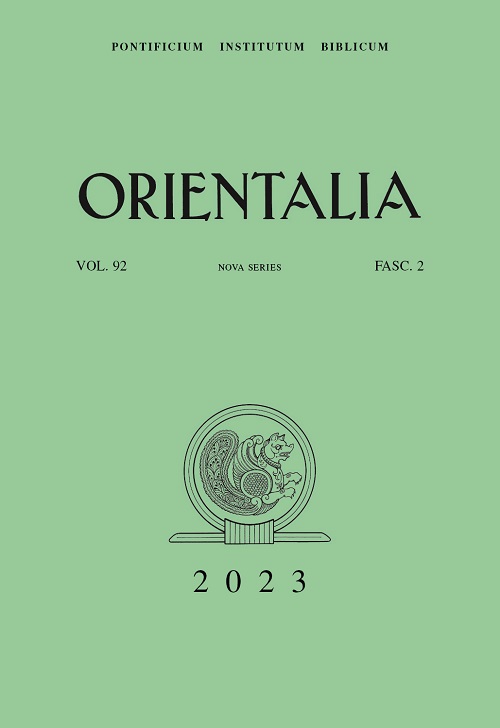 previous article in this issue previous article in this issue | next article in this issue  |

Preview first page |
Document Details : Title: Ancient Near Eastern Usurpers Subtitle: An Attempt at Systematizing the Concept Author(s): EPH'AL-JARUZELSKA, Izabela Journal: Orientalia Volume: 93 Issue: 1 Date: 2024 Pages: 44-95 DOI: 10.2143/ORI.93.1.3293746 Abstract : Working on the basis of a political science definition of usurpation, this article depicts the manifestations of this phenomenon in ancient Near Eastern sources from the Old Babylonian period through to the Neo-Babylonian era. Its perception herein — material that varies greatly in content and genre — is structured according to a scheme that adopts a rough distinction between usurpation as a well-known general socio-political phenomenon and specific instances of unlawful seizure of power. A review of the latter evinces that not all cases presented as usurpation were seizures of power in violation of accepted norms. The activity was in fact often subjectively defined, this fact manifesting itself in two very different political contexts: 1) internal power struggles, in which rulers levelled charges of usurpation as a way of undermining, discrediting, and/or delegitimising their opponents; 2) 'international relations' characterised by dependency, subjugation, and conquest, wherein rulers labelled leaders seeking to throw off their foreign yoke as usurpers. Three types of usurpers can thus be identified: a) de facto usurpers who seized the throne against the accepted rules; b) political rivals in the struggle for power; c) rulers of subordinate or conquered kingdoms seeking independence. The findings likewise demonstrate that ancient Near Easterners had a clear conception of legitimate authority that aligns with the modern political science definition. |
|


